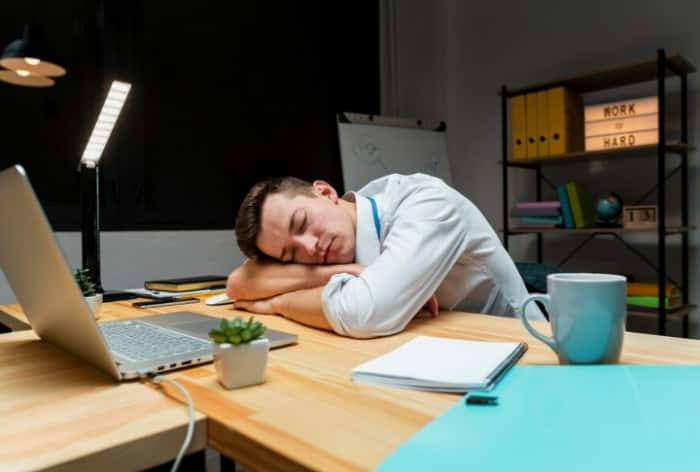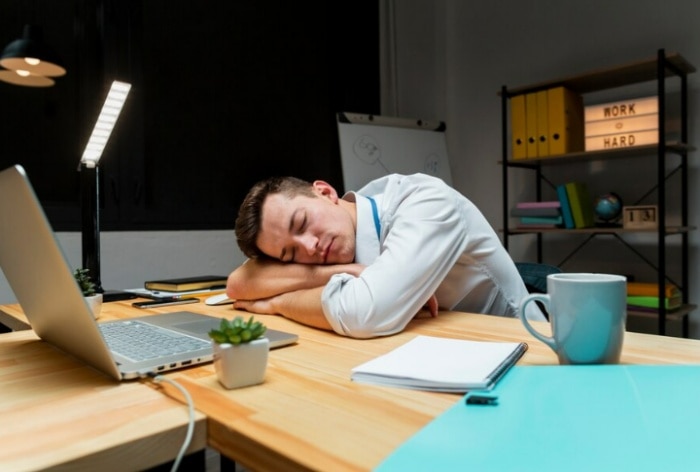Sleep deprivation is a rising health concern that several people deal with. But can taking small naps in between the day make up for the sleep lost?

Do you often doze off scrolling through Instagram reels or watching a show on OTT? It has happened to the best of us. Often, screen take takes us our sleep times as well and leads to loss of good quality sleep. Using mobile or gadgets right before sleeping is also not considered conducive for a quality slumber.
In this hustle and bustle -some life, the body is put under too much stress, too much work. This often leads to loss of quality sleep time. Ideally, adults are recommended to sleep for atleast 7-8 hours per day. But the lack of it can have have consequence on both physical and mental health. Often during the afternoon, the body dips in alertness, one tends to become groggy, sluggish and feel like taking a power nap. Well, it is called a power nap for a reason.
Do Naps Help With Lost Sleep?
It’s important to note that napping is not a substitute for getting adequate nighttime sleep. While a strategic nap can help compensate for sleep loss, it should be seen as a complementary strategy, not a long-term solution for chronic sleep deprivation.
The optimal nap duration depends on the individual, but generally, shorter power naps of 20-30 minutes are most effective for boosting alertness and cognitive performance without leaving you feeling groggy upon waking.
Speaking with the New York Times, Dr. Molly Atwood, a clinical psychologist and behavioral sleep medicine researcher at Johns Hopkins Medicine says,“When you haven’t gotten a great night of sleep, napping can really help improve things like reaction time and memory if you need to be working.”
“If you usually work during the day, for instance, a 20- to 30-minute nap can restore alertness without leaving you groggy or disrupting your sleep the next night,” Dr. Atwood adds.
Taking short naps during the day can help you get back to being alert, give you a burst of energy and help you concentrate better rather than being lazing for hours.
5 BENEFITS OF TAKING A NAP
- Boost Cognitive Performance: Numerous studies have shown that a short power nap of 20-30 minutes can significantly improve cognitive functions like memory, concentration, and decision-making that may have been impaired due to lack of sleep.
- Boost Mood: Sleep deprivation can lead to irritability, fatigue, and mood swings. Napping can help restore positive mood states and reduce feelings of drowsiness and exhaustion.
- Alertness and Productivity: A well-timed nap can increase alertness, energy levels, and productivity, allowing you to be more focused and efficient in the latter half of the day.
- Cardiovascular Benefits: Research suggests that regular napping may have positive effects on cardiovascular health, potentially reducing the risk of heart disease and stroke.
Incorporating naps into your routine, especially during periods of sleep deprivation, can be a valuable tool to help you maintain productivity, cognitive function, and overall well-being. However, it’s always best to prioritize getting sufficient high-quality nighttime sleep as the primary strategy for managing sleep needs.

